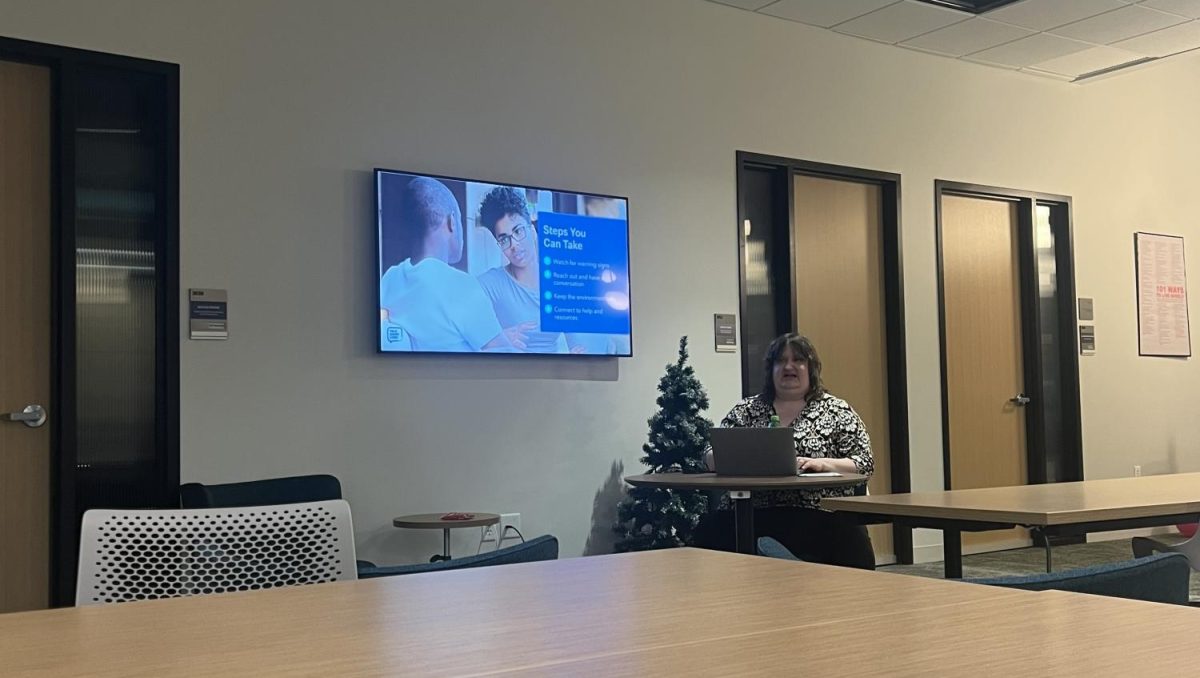 I am a vegetarian — an herbivore, a plant muncher.
I am a vegetarian — an herbivore, a plant muncher.
Naturally, this means I want to save the world by giving all pigs a big hug, frolic under a rainbow with cows and swim across the Pacific with dolphins. Not that I need the exercise, because my meat-free diet means I’m as healthy as a horse.
Meat lovers and vegetarians alike are guilty of associating this romantic notion with vegetarianism. Vegetarian is often synonymous with healthy for some, but with ill-informed tree huggers for others. In fact, when I started to Google “Why is being vegetarian…” the first suggestions were “good for you,” followed by “bad for you” and “stupid.” When you consider that sugar, alcohol, oil and modified grains could all constitute a meat-free diet, it is no surprise that people are concerned with the diets of vegetarians.
When I became a vegetarian in January 2012, I wasn’t afraid of eating something with a face, but instead the side effects of meat consumption on heart health and the environment. When I learned that meat production contributes to nearly 20 percent of greenhouse gas emissions, I was stunned. Add to that, many studies have linked meat consumption to cardiovascular disease, and cutting meat out of my diet was an easy choice. However, I didn’t actually know what I was doing. I didn’t do much research on how to balance my diet. I had good reasons, but poor execution.
As a result, I filled up on pasta, rice and bread. It wasn’t until a friend showed me the documentary “Forks Over Knives” that I realized my diet was missing nutrients like iron, protein and healthy fats. The documentary discusses the health benefits of an animal product-free diet as well as many studies which have addressed the health concerns associated with eating meat. It highlights two doctors whose treatments include whole food diets designed to help their patients.
Seeing the effects of a balanced diet inspired me to change my approach to vegetarianism. I am still far from perfect. While one of my cabinets is filled with quinoa, vegetables, lentils and more components of a healthy vegetarian diet, the other is packed with everything necessary to make any baked good imaginable. This only becomes a problem when I focus more on cookies and less on vegetables.
The biggest issues I’ve seen have been with education and research. Whether someone is considering why or how to be a vegetarian, sources are important. You are likely to come across hundreds of bloggers who claim certain benefits of a vegetarian diet. While these individuals are likely well-intentioned, it is vital to reference reliable academic research or governmental institutions for your information. For exactly this reason, I don’t plan on offering any advice based on my personal practices as a vegetarian. Brown University’s Health Education Center offers a detailed yet clear fact-sheet on vegetarian diets. While everyone’s reasoning is unique, it is vital that choices are informed.
The execution of a vegetarian diet requires a lot of research. It pains me to see all of the vegetarian meals posted on Pinterest. While some recipes are well rounded, others lack any knowledge of dietary necessities. I am not a nutrition expert, but if you think a daily lunch of iceberg lettuce with feta cheese and strawberries will build a healthy diet, you are sadly mistaken. Moderation and balance are key. Yes, oranges are good for you, but if you eat 12 oranges daily, and nothing more, you will be far from healthy.
There is such a thing as a balanced and healthy vegetarian diet. You’ll just need to work a bit to get there. According to Brown’s Health Education Center, vegetarians must pay particular attention to consumption of iron, protein, calcium, vitamin D, and vitamin B-12. These nutrients can be found in a variety of foods, but dark leafy greens, legumes, nuts and seeds are a good start.
If properly executed, a vegetarian diet has life-changing potential. In fact, the American Dietetic Association claims that vegetarians face a lower risk of developing illnesses such as heart disease, diabetes, obesity, hypertension, and certain cancers. Assuming, of course, that the individual’s diet is balanced and includes all important nutrients.
Vegetarians come in all shapes and sizes, with different motivations and diets. Some plan completely balanced meals, while others switch off between Caffrey’s popcorn and Oreo shakes from the Annex. A meat-free diet isn’t automatically healthy; it takes a little digging to find the right balance. Once you do, you still won’t have the right to think you’re better than meat-eaters, but at least you can frolic with cows, guilt-free.






Maggie • Sep 17, 2013 at 5:46 pm
As a Registered Dietitian, I love this article. It is so important for people to realize this. Thanks for writing! If you write about nutrition again, please note that the American Dietetic Association changed its name last year. It is now the Academy of Nutrition and Dietetics.